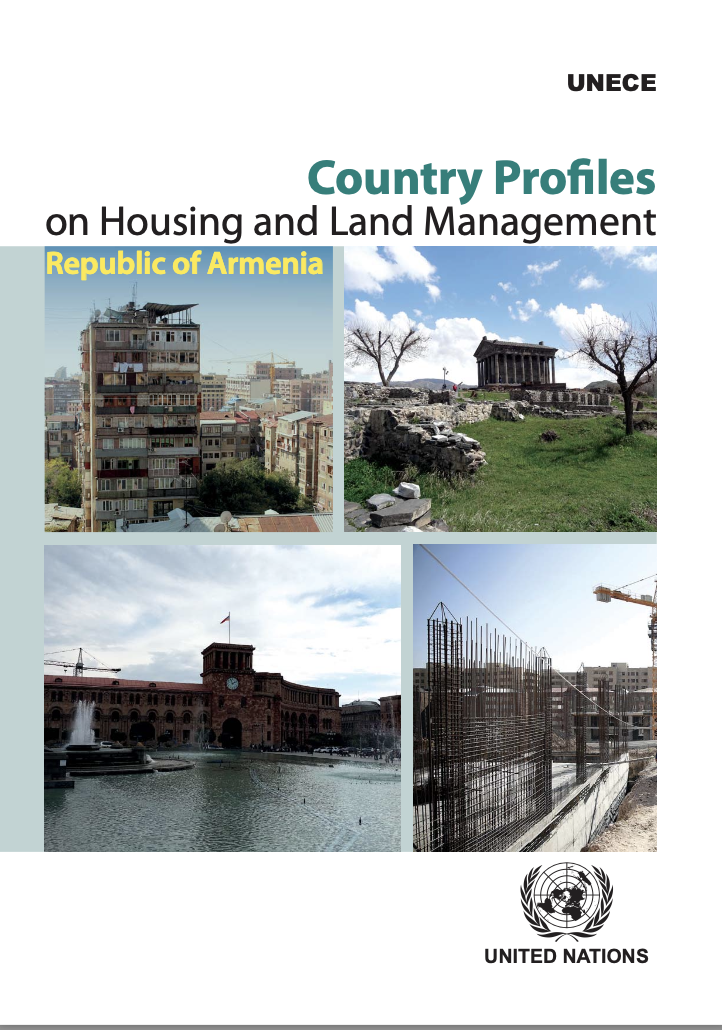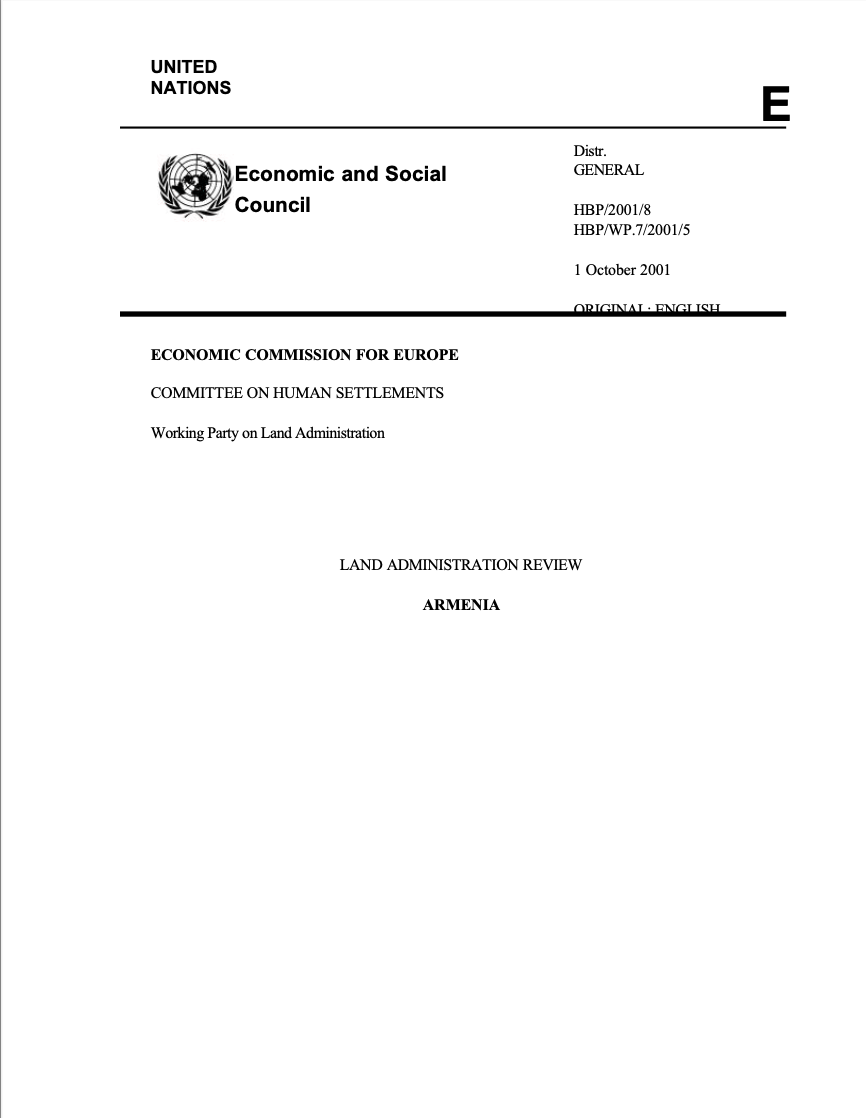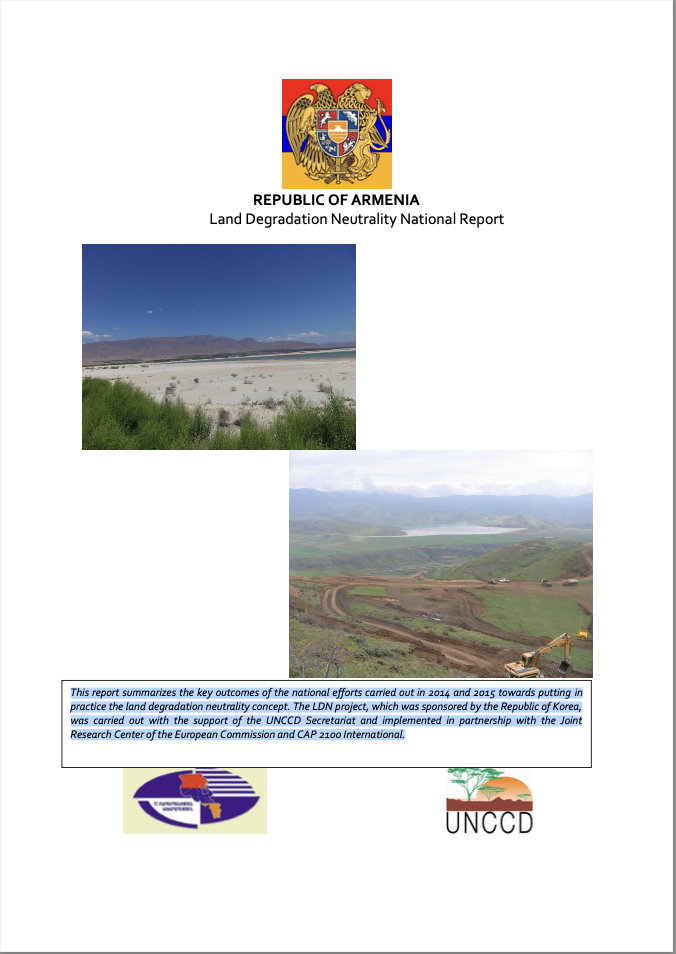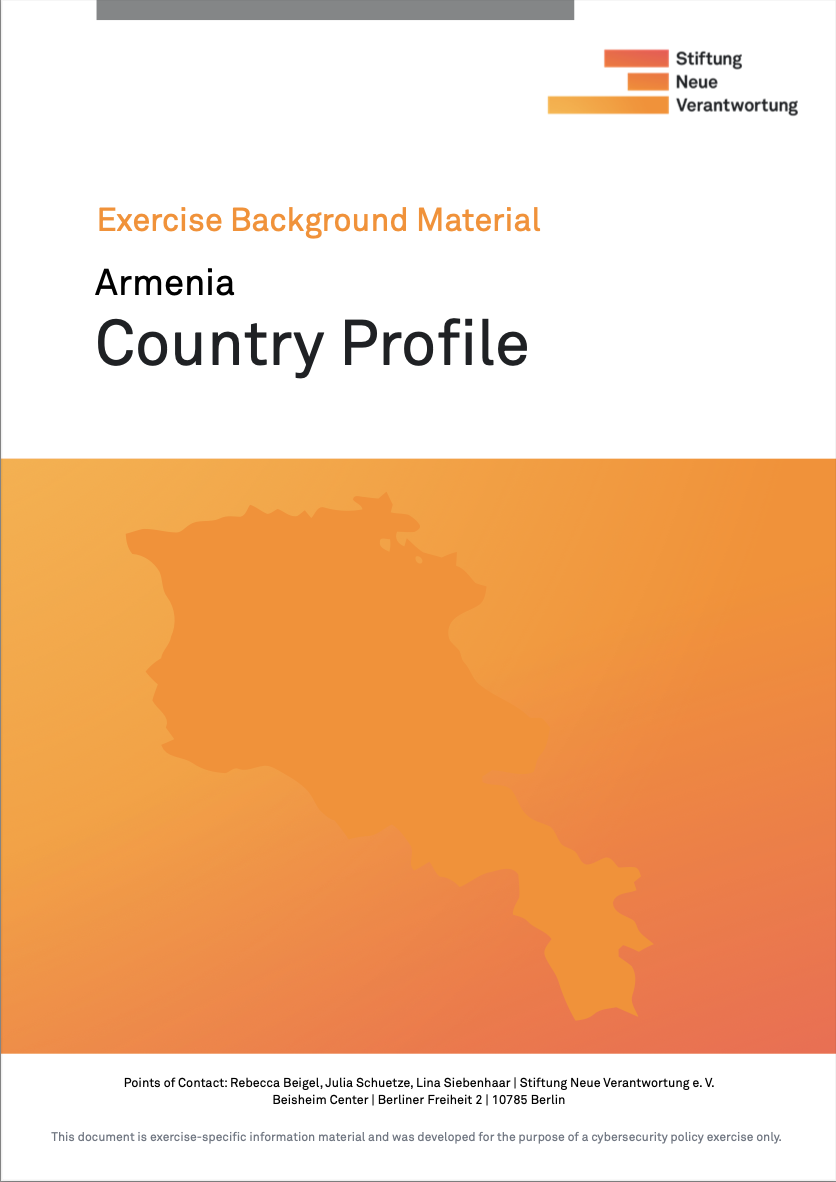
Topics and Regions
Daniel Hayward (UK) worked around Europe for 15 years as a dancer, choreographer and dance writer. Following retraining in sustainable development, he now works as an international development researcher, focused on land relations, agricultural value chains, gender, and migration. As well as working for Land Portal, Daniel is the project coordinator of the Mekong Land Research Forum at Chiang Mai University, and consultant for a variety of local and international NGOs and research institutes.
Details
Location
Contributions
Displaying 81 - 90 of 835Country Profiles on Housing and Land Management: Republic of Armenia
This Country Profile (CP) of the Republic of Armenia is the nineteenth in the series and the second review done for the country. The first was prepared in 2004 and the analyses covered only the housing sector. This CP is an in-depth analyses of the housing, urban development and land management sectors of the Republic of Armenia. It provides policy recommendations on these sectors, while focusing on specific challenges and achievements.
Land Administration Review: Armenia
At its sixty-first session in September 2000, the ECE Committee on Human Settlements accepted the proposal of the Bureau of the Working Party on Land Administration to provide expert assistance to Armenia on land administration issues (ECE/HBP/119, annex I, programme element “Land registration and land markets”). Security of tenure is one of the most important factors in fighting poverty and stabilizing communities by improving housing conditions through housing investments, reducing social exclusion, improving access to urban services, environment and safety in urban areas.
Republic of Armenia: Land Degradation Neutrality National Report
This report summarizes the key outcomes of the national efforts carried out in 2014 and 2015 towards putting in practice the land degradation neutrality concept. The LDN project, which was sponsored by the Republic of Korea, was carried out with the support of the UNCCD Secretariat and implemented in partnership with the Joint Research Center of the European Commission and CAP 2100 International.
Armenia Country Profile
The research only represents a country’s cybersecurity policy to a limited extent and is not an in-depth or complete analysis or assessment of current policy. In order to adapt the exercises to specific countries, it is important to understand the broader strokes of cybersecurity policies of other countries. Our team, therefore, researches publicly available information on cybersecurity policies of countries to adapt the exercises to country-specific needs. The research is shared with participants as background material in preparation for the exercise.
Stiftung Neue Verantwortung
Women and Men in Armenia
Gender statistics play a key role in mainstreaming gender into policies of the state and serves as a tool to adequately assess and reflect the situation of women and men in economic, social and political spheres of the society. Gender statistics allows increasing public awareness about the status of women in relation to that of men and conducting systematic study of gender issues.
Foreign Direct Investment in Armenia
After the fall of the Soviet Union and regaining its independence, Armenia has begun a process of systemic transformation. The level and pace of socio-economic development has been influenced by internal situation as well as by country’s geopolitical position and its relations with foreign partners. The purpose of this article is to present general characteristics of foreign direct investment that has been present in Armenia since the 1990s. The author describes several key factors shaping the volume, geographical, proprietary and sectoral structure of the FDI inflows.
Journal of Geography, Politics and Society
[Explainer] Wastelands or grasslands? India’s history with defining open ecosystems
Successful Land Individualization in Trans-Caucasia: Armenia, Azerbaijan, Georgia
How do we measure the success of agrarian transformation? Land reform, in- terpreted in the transition context as privatization of land with the associated is- sues of land market development and the restructuring of traditional large farms, is only one facet of a multi-dimensional process of transition to a market-oriented agriculture. However important land reform is, success requires progress in all relevant dimensions.










